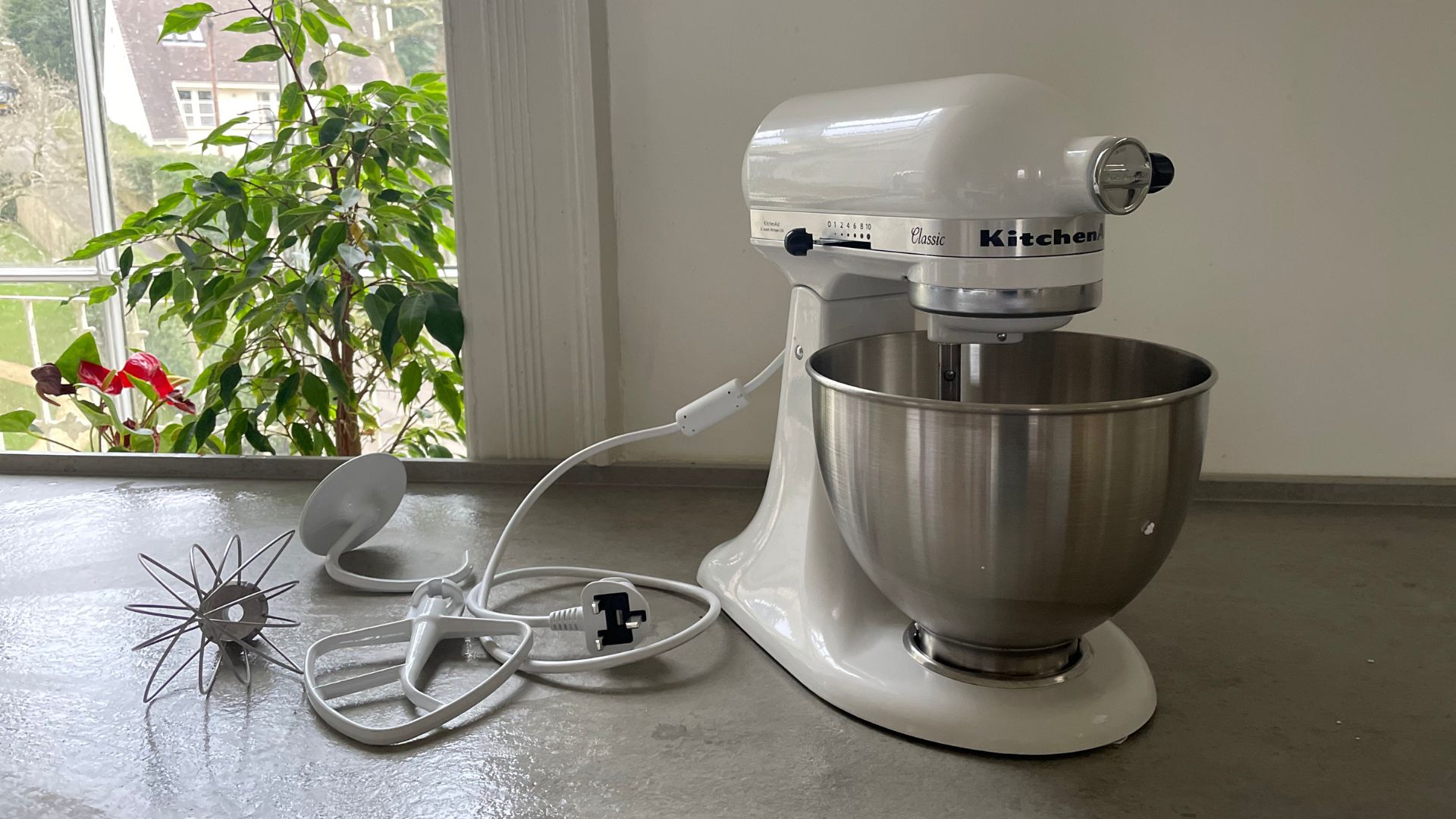
Oftentimes, when you strip something back to its basics, things get better. Of course, stand mixers with scales and spinning parts, and special extras are great, but the most important aspect of all if the fundamentals: has it got an egonomic design, good power behind it, and a bud that will endure the rest of time? The people who can answer test k all three are KitchenAid.
Any of their stand mixers can be found in lists of the best stand mixers of all time, but the simple KitchenAid Classic is their most affordable model. If you like the idea of having the iconic name in your kitchen, but you’re hesitant about the price tag and how much you’d use special features, the Classic is a great place to start. I tested this side-by-side the more expensive KitchenAid Artisan to help you work out which you really need.
Specifications

Unboxing
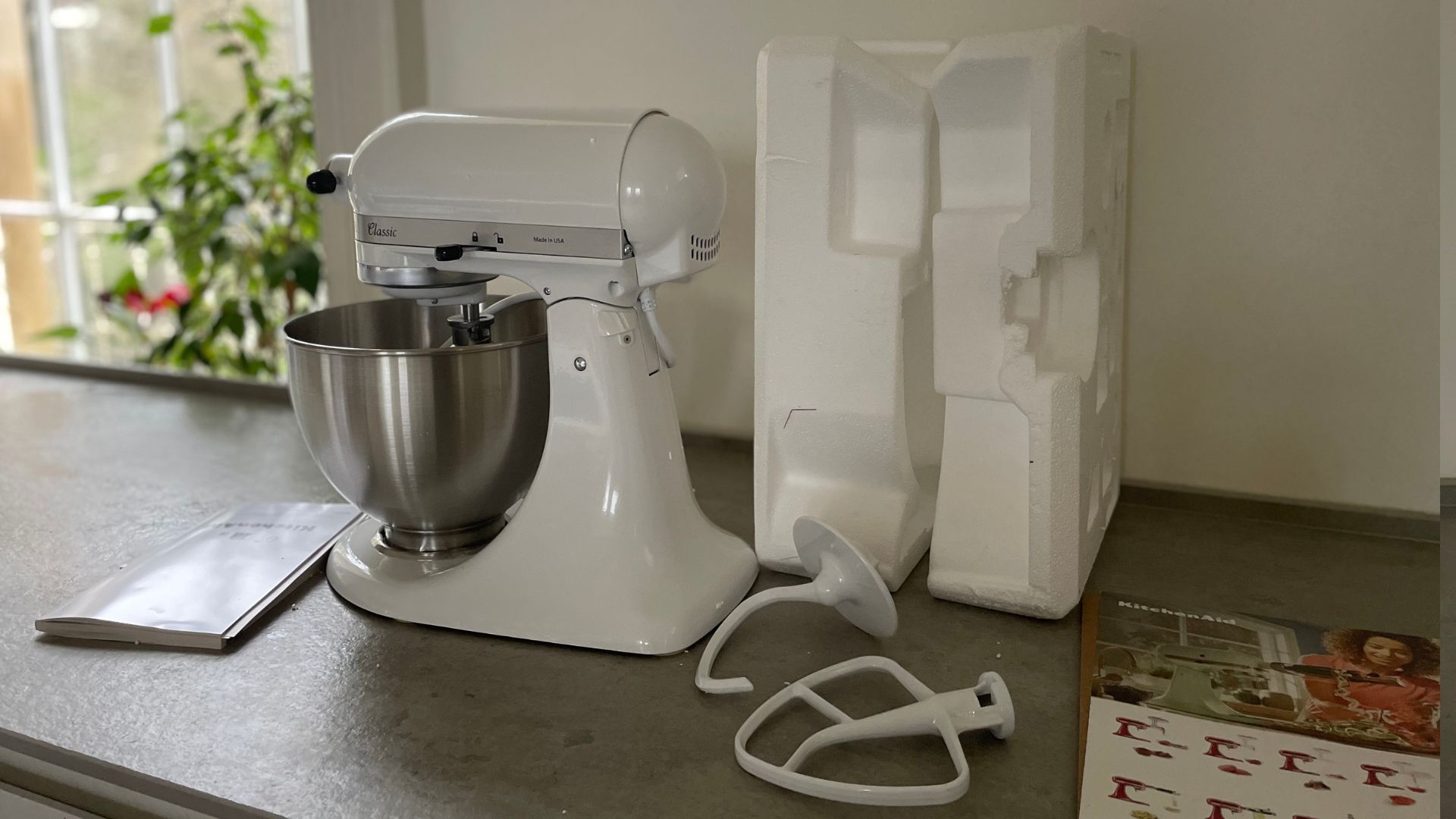
If you’ve done any research into the world of stand mixers, you’ll know to expect a fair amount of non recyclable packaging with yours. KitchenAid does a great job of keeping the stand mixers safe and easy to carry (there are useful handles on each side), but you’ll get some polystyrene that’s destined for landfill too.
The Classic comes with a dough hook, k-beater, and whisk, which is really all you need. More expensive models might come with a splash guard or a couple of extra attachments, but I always find that these just serve as clutter. As fundamentals go, this is pretty faultless.
Who would it suit?
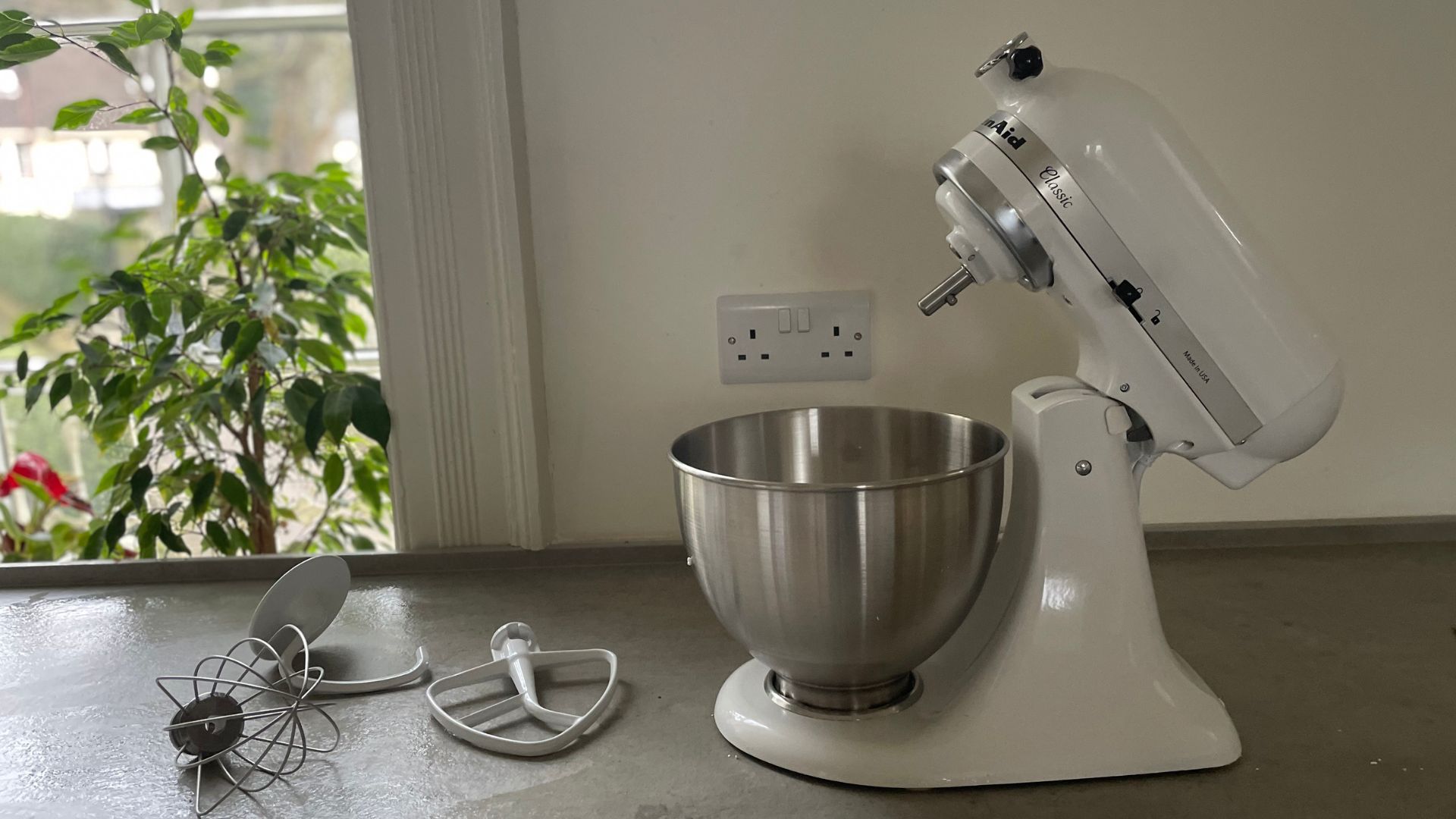
As I mentioned, this covers all your baking essentials with the core three attachments, the bowl also boasts enough capacity for a family’s worth of baking — two sponges, a large loaf of bread, and bowlfuls of whipped cream. In spite of that, it’s one of the smallest KitchenAids. Paired with the tilt head (rather than bowl lift) and it’s a dense, but compact addition to any counter, even in small kitchens.
That’s why this is a favourite amongst beginners and budget shoppers. You get KitchenAid quality without having to spend a small fortune. And, for the most part, you can enjoy their attractive colour range. More competent bakers might miss having a half speed setting (which mimics hand folding) or a splash guard for every last dusting of flour and I would have loved for the bowl to have a handle, but these are tiny details. For the most part, this is fabulous.
What is it like to use?

The functions on the Classic are simple. On one side, you have a lever that locks and unlocks the head for it to tilt back. On the other, you have a sliding scale of speed patterns. Then, you lock and twist the attachments into the head and do the same for the bowl on the base. More sophisticated KitchenAids have stainless steel attachments, but these coated ones feel reasonably robust. My mother-in-law had used one of these for a decade and a half and get attachments are still in pristine condition. Overall, it’s a simple set up, which is pleasing. The next most important part is what this is like with each attachment.
Test 1: cake
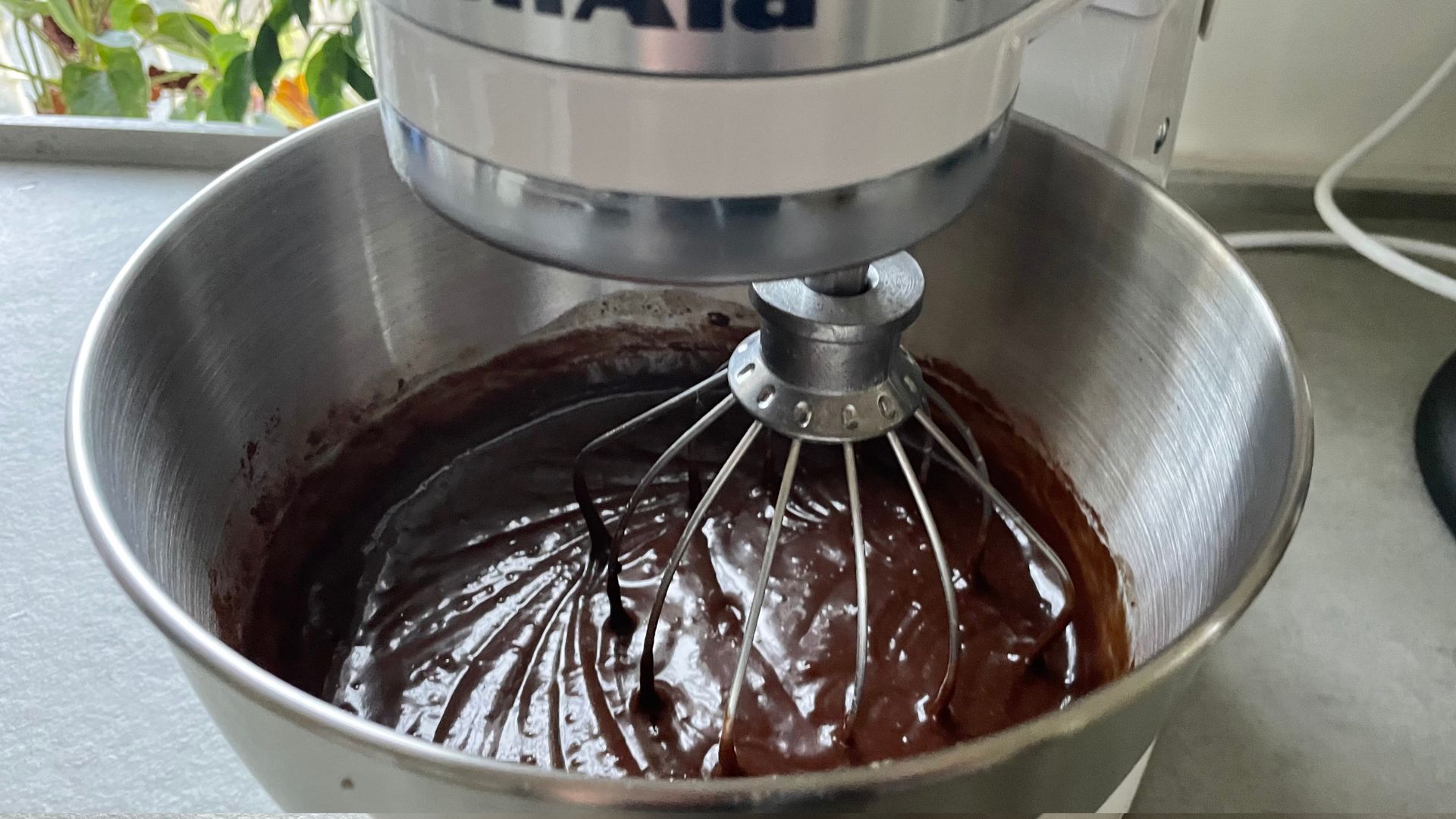
Cakes and baking are so similar that the words even sound the same. So, this is always the test that I start with. I used the K-beater to cream butter and sugar together before adding four, cocoa powder, eggs, and a splash of milk together. The K-beater did a wonderful job of covering all parts of the stand mixer, scooping and incorporating everything from the base of the bowl right through. My only gripe is that turning on the speed settings is quite aggressive. I sent a small cloud of flour flying over the work surface. It didn’t affect the results of my cake mix, but it did add to the clean to effort, which is my weak point, if I’m honest.
I wanted to give this a whirl with a thicker task, so I decided to trial out a cookie dough. This starts with a similar story: cream the butter and sugar together , but instead of adding liquids to make life easier, I added flour and chunks of chocolate. The K-beater took this in its stride, effortlessly whipping cup a smooth dough. Again, all the ingredients were evenly mixed and the chunks of solid chocolate didn’t get jammed under the k-beater either.
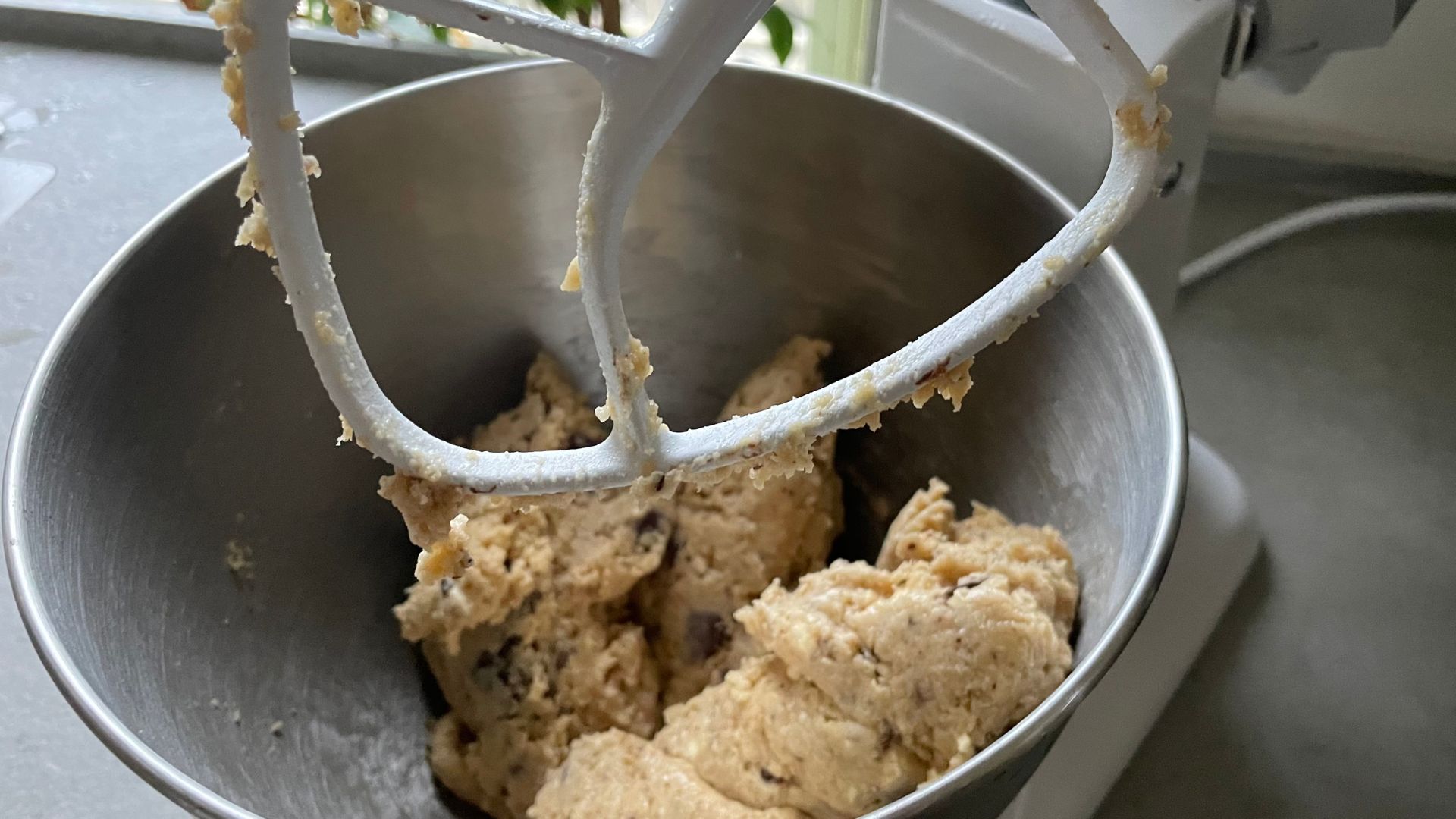
Test 2: bread
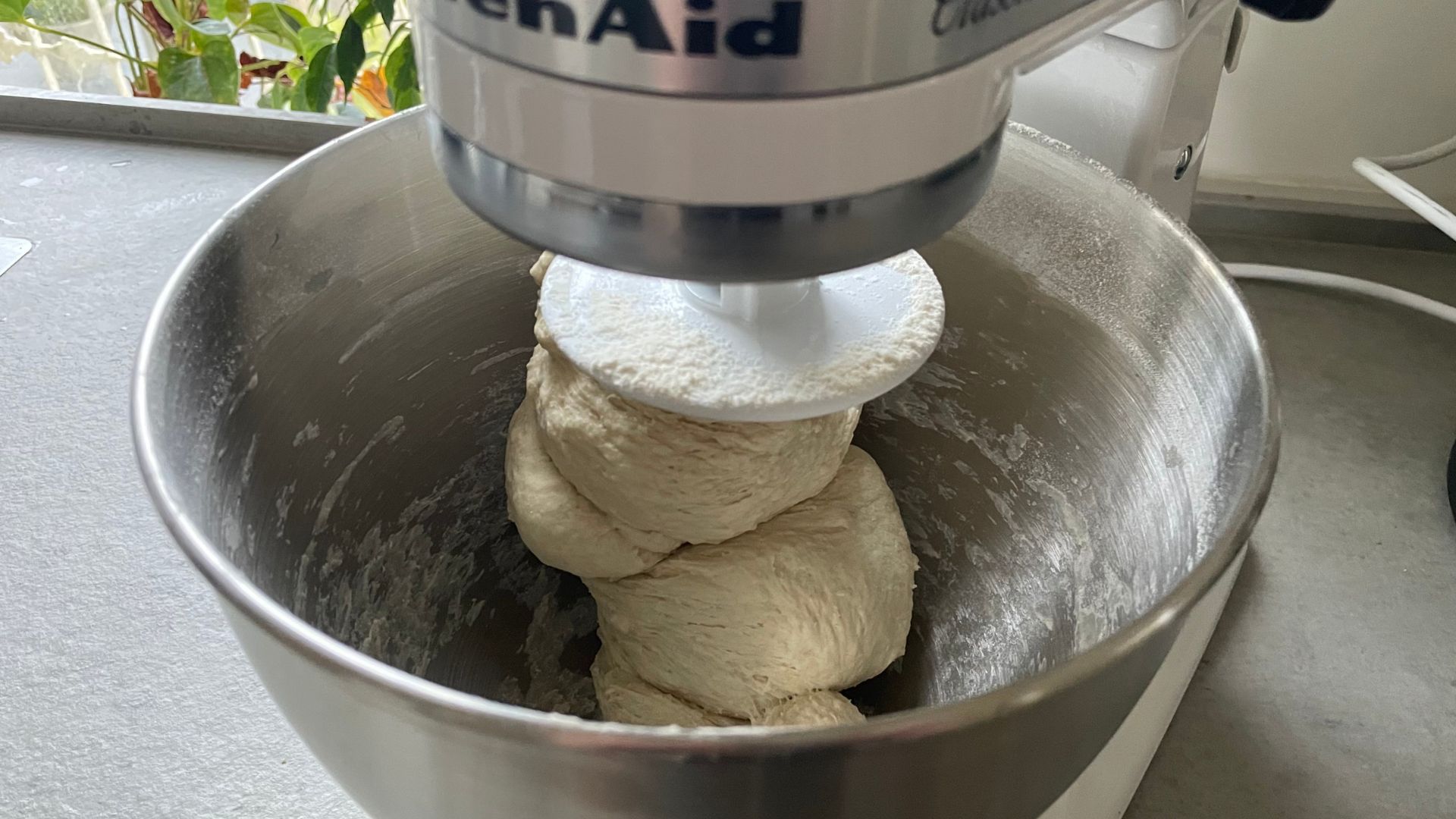
It bodes well that cakes and cookies were a success, but that doesn’t certify the perfect dough. I made a typical white loaf, using flour, salt, water, and yeast all together. In five minutes this had kneaded a soft, elastic ball of dough. The pictures make it look like this got stuck around the hook, but the KitchenAid actually did a great job of keeping the dough moving without shaking itself around in the counter — I’ve known other models to work themselves off the counter with the effort of kneading dough.
I had a similar puff of flour onto the counter at the beginning, even starting with a low speed setting, but it wasn’t a major issue.
The proof was indeed in the baking and I mad e beautiful loaf of bread — it has a lovely, open structure with great rise. The crust was delicate, but crispy. It’s a faultless performance from the KitchenAid classic.
Test 3: whipped cream
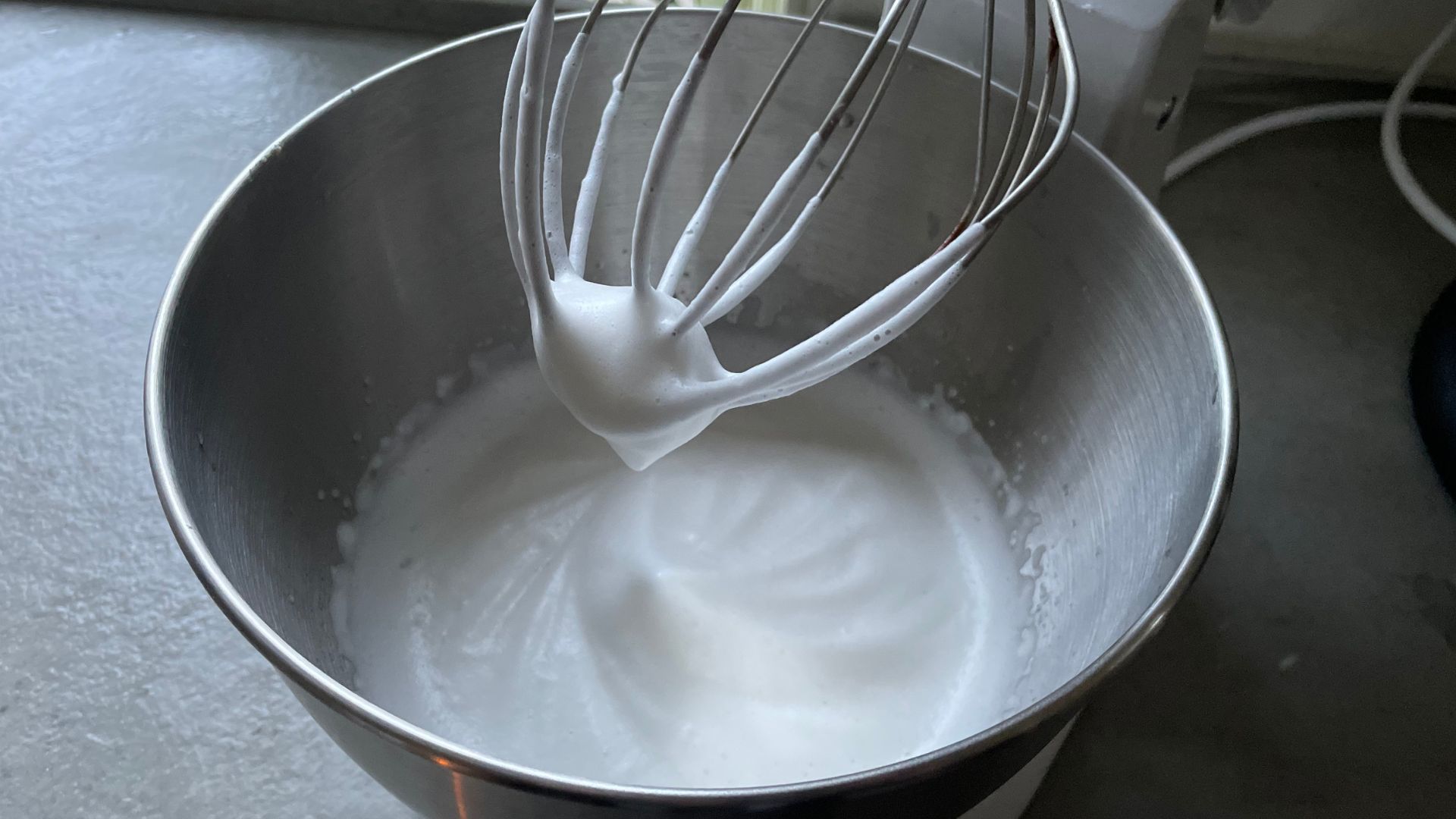
The final attachment, the whisk is probably the easiest to use. I had to enlist the help of this with a different cake batter that I made. This one was vegan and very wet. It quickly ended up lumpy, so I popped the whisk on in the hopes that it while be able to help me out. It did. The batter was smooth and glossy in less than two minutes on the medium speed — very handy.
I also tried whipping chickpea water (aquafaba) which was making stiff white peaks in less than three minutes on maximum strength. That’s seriously impressive. It was 74 dB, which is about as loud as a hairdryer, but that’s not too bad in my books.
I’ve since whipped cream (vegan and non vegan) with great success, so all in all, this is an impressive stand mixer.
Cleaning
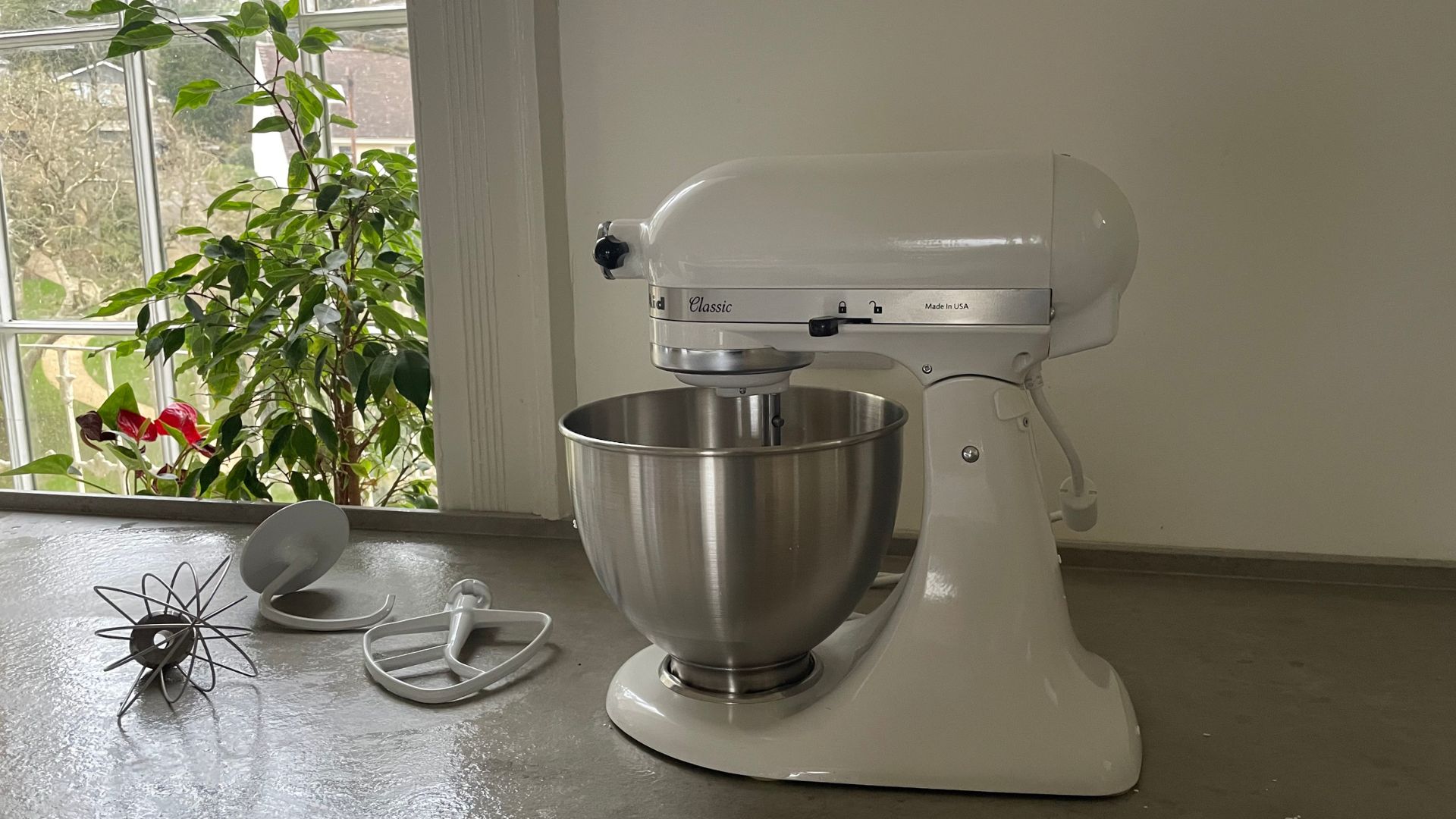
Once you’ve finished baking, there’s more. All the parts and bowl can go in the washing machine, so you don’t need to faff around with any extra work. I actually do like to hand wash my stand mixer parts, because it’s much more gentle on the materials, meaning yours will last for longer. Also, as expected with the white colourway, mine needed a wipe after use with a warm, damp cloth.
How does it compare?
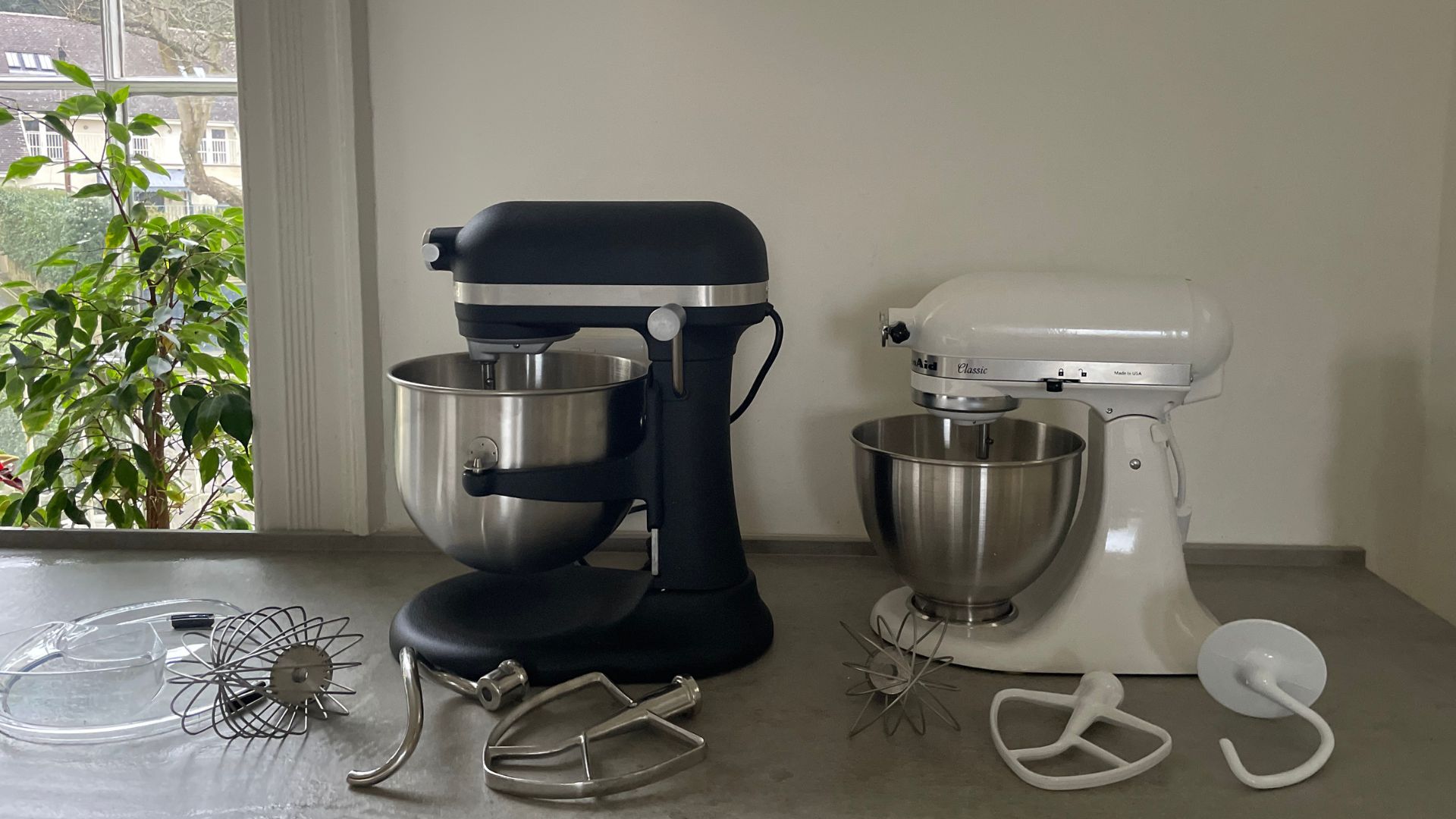
I tested this directly alongside the Artisan bowl lift, so that you would know whether it’s worth opting for the more advanced model. If you’re new to baking and not fussed about the nuances of half speeds and handles, it’s not worth spending any more money. However, if you need some extra capacity or you’d make use of more subtle speed settings, it might be worth opting for the Artisan. It’ll have more power behind it too.
If you’re not fussed about brands, I really like the Kenwood GO. This is a compact stand mixer that’s been designed for new bakers short on space. It has a useful handle on the top for moving the stand mixer around, as well as a reasonable price tag and lots of speed settings. You’ll have less capacity, but I wouldn’t mind that for the money and convenience of the Kenwood Go.
Should you buy it?
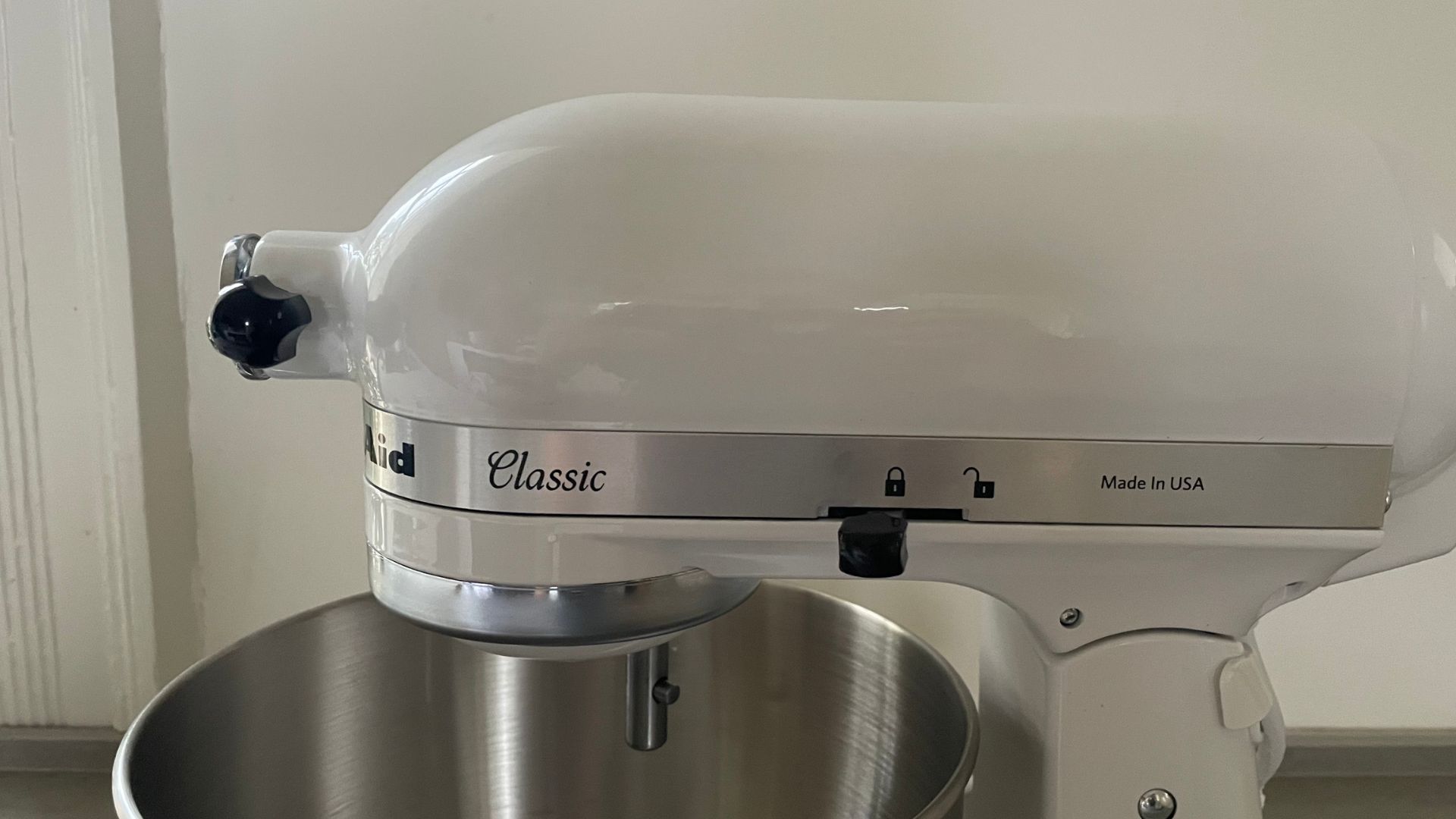
If you want a KitchenAid, but you don’t need the airs and graces of more premium models, don’t look further than this. It’s the best value stand mixer you’ll get from their range and it covers the basics exactly as you would expect a model from the iconic brand to.
How we test
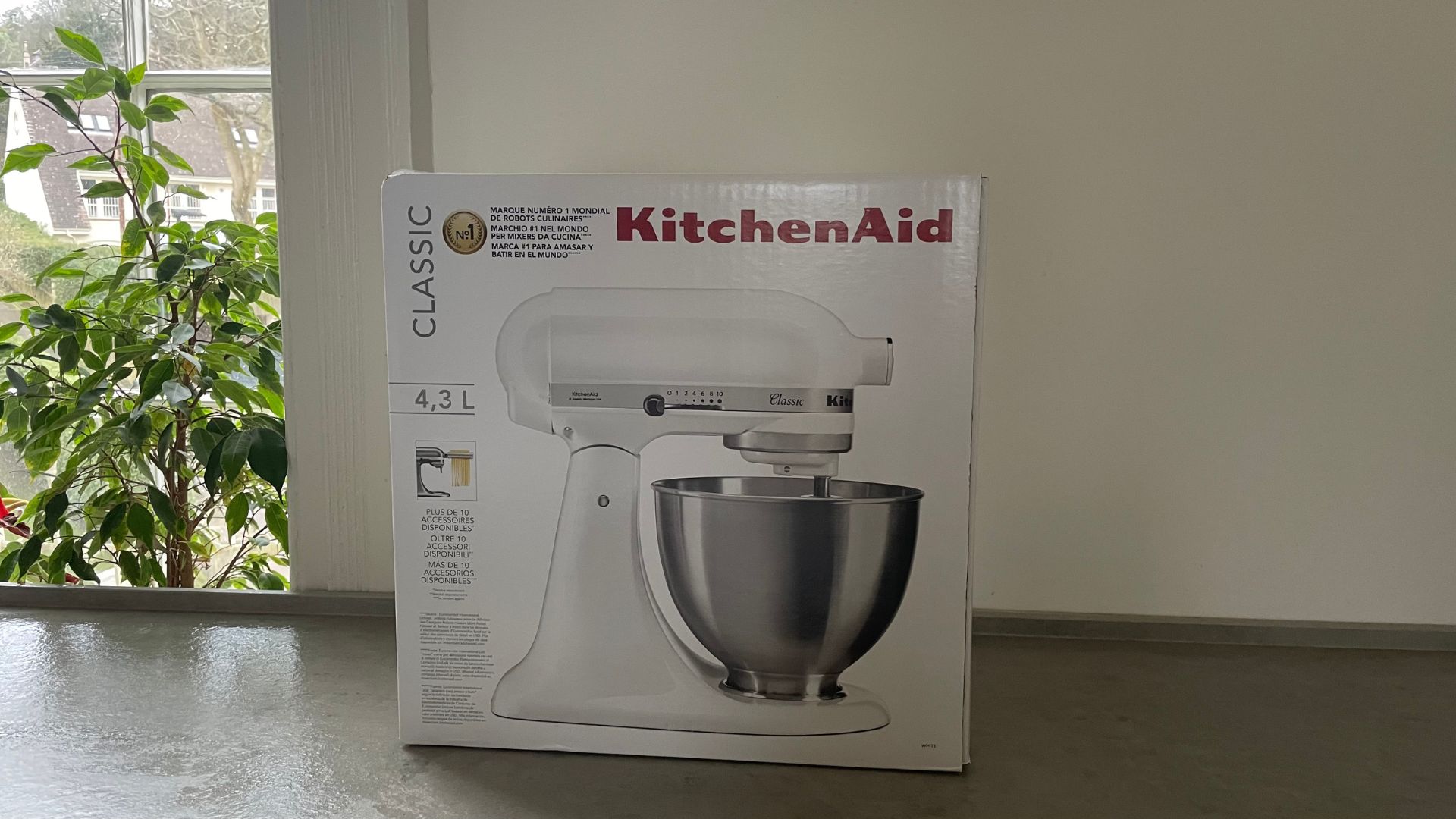
Testing stand mixers is easily my favourite part of the job—I get to bake and call it work. As an avid baker of cakes, breads, and pastries, my passion ensures that the tests I conduct are thorough and reliable. Each stand mixer is put through its paces repeatedly to ensure a fair test.
To maintain consistency, I follow a set of standardized tests for every model. I start by making chocolate cake batter to assess the creaming, mixing, and beating functions. Then, I move on to brown bread, which thoroughly tests the dough hook. Finally, I use the whisk to whip both regular and vegan cream, giving me a clear picture of the mixer’s power and versatility.
Beyond these standard tests, I keep the stand mixers in my kitchen for everyday baking to identify any practical quirks or challenges you might encounter at home. Once I’ve thoroughly assessed a mixer, I compare it with other models, considering its value and identifying who it’s best suited for. My goal is to help you decide if it’s the right choice for you—or guide you toward a better option if it’s not.
You can find out more about how we test stand mixers on our dedicated page.







